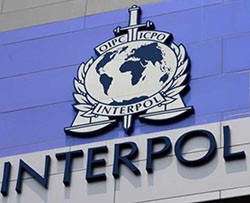INTERPOL Warns Healthcare Providers about COVID-19 Ransomware Threat
 INTERPOL issued a global alert to law enforcement agencies and police about the increased risk of ransomware attacks on medical institutions, hospitals, and other organizations that fight the COVID-19 pandemic.
INTERPOL issued a global alert to law enforcement agencies and police about the increased risk of ransomware attacks on medical institutions, hospitals, and other organizations that fight the COVID-19 pandemic.
The hospitals and medical organizations across the world are working to preserve the wellbeing of people hit by the outbreak. People have become targets for cybercriminals looking to profit on the backs of vulnerable people and patients, according to Interpol secretary general Jürgen Stock.
This Week In Malware Ep 11: Hackers Thrive on Covid-19 Themed Ransomware & Malware Attacks
Blocking hospitals from using their critical systems does more than delay the medical response needed in these times, but it may lead directly to deaths. INTERPOL stated they stand by their member countries in assisting in ensuring healthcare systems remain unaffected with criminals being held accountable.
INTERPOL mentioned they're taking measures by providing technical support and advice on protecting the medical infrastructure.
The primary vector of attack at this time appears to be phishing emails made to look like they were sent from government sources. The news arrived days after Microsoft issued an alert that several dozens of hospitals were vulnerable due to ransomware groups using their gateway and VPN to look for exposed endpoints.
Vanderbilt University and the University of Central Florida published a study in 2019, showing data breaches at hospitals led to 36 more deaths for every 10 thousand heart attacks that year. With the ransomware outages, there may be an even worse outcome with patients than what happened in 2019.
Users are advised to turn to prevention and mitigation
Taking steps to stop further attacks means prevention and mitigation, especially for high-risk organizations like hospitals, according to INTERPOL. Minimizing the risk of disruption in case of attacks, the organization encourages hospitals to keep their software and hardware up to date. Strong security measures should be taken to back up essential files and to store them separately from other systems.
The steps necessary to make that happen were broken down into the following:
- Only opening emails and downloading software from trusted sources.
- Securing email systems to protect against spam.
- Avoiding the opening of attachments in emails from unknown senders or unknown attachments.
- Backing up all critical files frequently and storing them apart from the system on external drives and/or in the cloud.
- Ensuring the latest version of any security software is installed on all systems and mobile devices.
- Using strong and unique passwords on all systems and updating them regularly for added security.